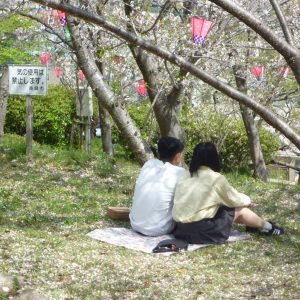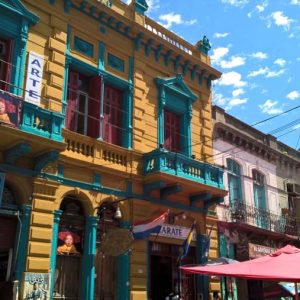A bittersweet stay in Paphos refreshed fond memories and made me smile.
Many years ago, my parents, who are no longer with us, lived in this lovely area of Cyprus, and every year, during the school summer holidays, I took my young sons to stay with them for a few weeks. The boys swam in the sea, chased around on the beach, picked lemons from granddad’s tree in the garden and felt very grown up when they tucked into a meze, sitting at a long wooden table outside a local taverna.
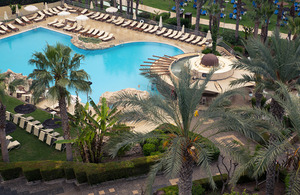 On this visit, our base was the modern, recently renovated, four star St George Hotel, Golf and Beach Resort, in Chlorakas, just 19km from Paphos airport and six kilometres from the town. From my bedroom window, one of 225, I looked out on a view of the lovely pool and gardens. The village of Chlorakas is close to the villa where my parents used to stay. I remembered the happy times as I walked past the house.
On this visit, our base was the modern, recently renovated, four star St George Hotel, Golf and Beach Resort, in Chlorakas, just 19km from Paphos airport and six kilometres from the town. From my bedroom window, one of 225, I looked out on a view of the lovely pool and gardens. The village of Chlorakas is close to the villa where my parents used to stay. I remembered the happy times as I walked past the house.
There’s another way to turn back the years by exploring the culture and history of the western side of this beautiful island.
The old Cypriot way of life is still evident in tiny villages where donkeys carry paniers of vegetables, grain and grapes. Vehicles give way to families on the road, herding their goats to grazing fields. Old men with brown, weather beaten faces while away the day at traditional coffee houses where they sit and chat at wooden tables. If they are widowed, grandmothers, or yayas, dress in black from head to foot for the rest of their lives. In these villages, some people make their living by selling home produce, such as honey and jams, eggs, fruit, vegetables, kolokoti (vegetable pies) and halloumi cheese made from goat’s milk. Sophia, who lives in Letymbou, gave us a lesson in bread-making. She wasn’t impressed at my efforts and re-did the whole process after my attempt. Husband, Andreas, bakes the bread in an oven in the garden.
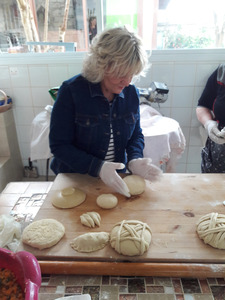 Agrotourism is on the up in Cyprus. Many visitors are choosing to stay in typical Cypriot dwellings within timeless villages with tiny painted churches and stunning scenery to explore forested mountain trails and a lifestyle which has barely changed over the years. Following the trend for agrotourism, many villagers have moved out of their traditionally-furnished family house to offer a peaceful, off-the-beaten track experience to tourists. Some have installed a couple of small, one bedroom garden apartments and even a swimming pool. For those families who still follow the tradition of providing a dowry house for a daughter, the rental income is a welcome support.
Agrotourism is on the up in Cyprus. Many visitors are choosing to stay in typical Cypriot dwellings within timeless villages with tiny painted churches and stunning scenery to explore forested mountain trails and a lifestyle which has barely changed over the years. Following the trend for agrotourism, many villagers have moved out of their traditionally-furnished family house to offer a peaceful, off-the-beaten track experience to tourists. Some have installed a couple of small, one bedroom garden apartments and even a swimming pool. For those families who still follow the tradition of providing a dowry house for a daughter, the rental income is a welcome support.
Years ago, when my parents had just moved to Paphos, my father bought some plastic casks of rough village wine, made by local residents. He was delighted with the bargain price, but the wine was rough and ready to say the least. Today, many acclaimed Cypriot wines, made from indigenous and global varieties, have attracted admiration. At the award-winning Tsangarides winery in Lemona village, around 300,000 bottles of wine are produced every year. The aim of brother and sister Angelos and Loukia Angarides, who own about 15 hectares of land and have embarked in a serious investment programme. is to produce the next generation Cypriot wines.
The coastal city of Paphos dates back to pre-historic times, is one of the oldest cities in the world and was the European Capital of Culture, 2017. Paphos Aphrodite Festival stages annual, grand operatic performances in the open harbourfront square in front of the old fort.
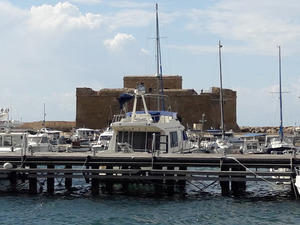 It is now a popular tourist destination, but on our out of season sojourn, it was early morning and quiet when I strolled along the promenade to the harbour, where gulls screamed as they swooped into the water, hoping to snatch a morsel of the day’s haul, and boats bobbed on the sunlit azure sea.
It is now a popular tourist destination, but on our out of season sojourn, it was early morning and quiet when I strolled along the promenade to the harbour, where gulls screamed as they swooped into the water, hoping to snatch a morsel of the day’s haul, and boats bobbed on the sunlit azure sea.
Nearby, the Paphos Archaelogical Park UNESCO World Heritage Centre contains the most important part of the ancient Greek and Roman city and is still under excavation. Four impressive, elaborate and restored Roman villas showcase the beautifully-preserved, hand-crafted mosaic floors, considered to be among the best in the world. The House of Dionysus is an exceptionally rich villa which occupies 2000 square metres 556 of which are covered with mosaic floors depicting mythological gods, goddesses and hunting scenes.
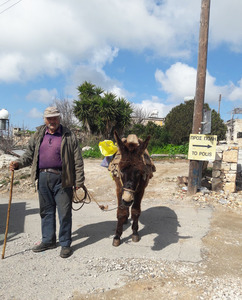 Greek goddess Aphrodite’s birthplace is in Paphos. It is said that by completing a certain task, the goddess of love and beauty will help you to look younger – 10 years younger. Sounded good to me and I was about to take up the challenge at Petra tou Romiou, until I learned the task must be undertaken naked, at midnight and when there is a full moon.
Greek goddess Aphrodite’s birthplace is in Paphos. It is said that by completing a certain task, the goddess of love and beauty will help you to look younger – 10 years younger. Sounded good to me and I was about to take up the challenge at Petra tou Romiou, until I learned the task must be undertaken naked, at midnight and when there is a full moon.
One of the most breathtakingly beautiful and least inhabited parts of the island is the Akamas region, north west of Paphos. Travelling by jeep, we passed the stunning sea caves to reach Lara Bay, one of the best and most tranquil beaches. In June, on the beach, there are often more nesting green and loggerhead turtles than people in this important turtle conservation area.
Aphrodite also has a presence in this region. Apparently, at the Baths of Aphrodite, brazenly, she is said to have bathed with Adonis, one of her many lovers.
At the the Port Latchi harbour front restaurant in the picturesque, secluded port of Latchi, we savoured a fresh fish lunch with salad and chips. Cypriot food is fresh, colourful and plentiful. Within the Koutourou Taverna in Kato Paphos, we sampled a feast of a meze with honey-baked halloumi, spicy sheftalia (sausages), chick-pea puree, grilled aubergine and much more. 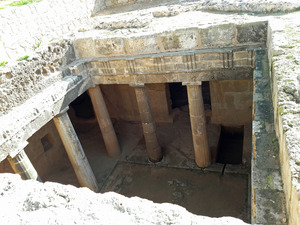 On another evening, at the Halamanduro Tavern, Geroskipou, we had another amazing meze and watched the locals dance to the strains of the bouzouki and sounds of the traditional singers.
On another evening, at the Halamanduro Tavern, Geroskipou, we had another amazing meze and watched the locals dance to the strains of the bouzouki and sounds of the traditional singers.
The UNESCO World Heritage Site, the Tombs of the Kings, in Paphos is well worth a visit. The tombs were constructed for high-ranking officials and the high-born rather than kings, up to the third century AD. Enormous underground burial grounds, they are carved from rock. Some include an atrium, columns and a bed, in the style of a house. Hot, open and dusty, the site is best explored in the cooler times of the day. Suddenly, frightened, I hurried up the steps towards the daylight before the opening closed on the tomb, for eternity, leaving me trapped with no means of escape. Evidently, I’ve watched too many scary films.
More information
www.stgeorge-hotel.com from £103 including breakfast per room per night.
www.easyjet.com Manchester/Paphos from £118.04 return departing in June.

